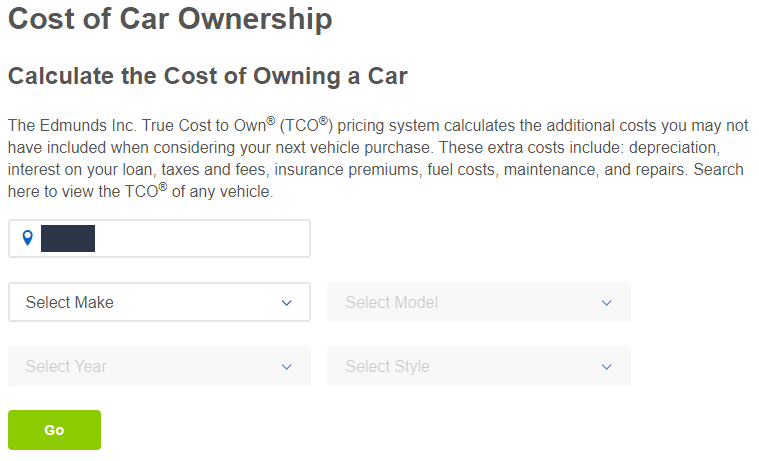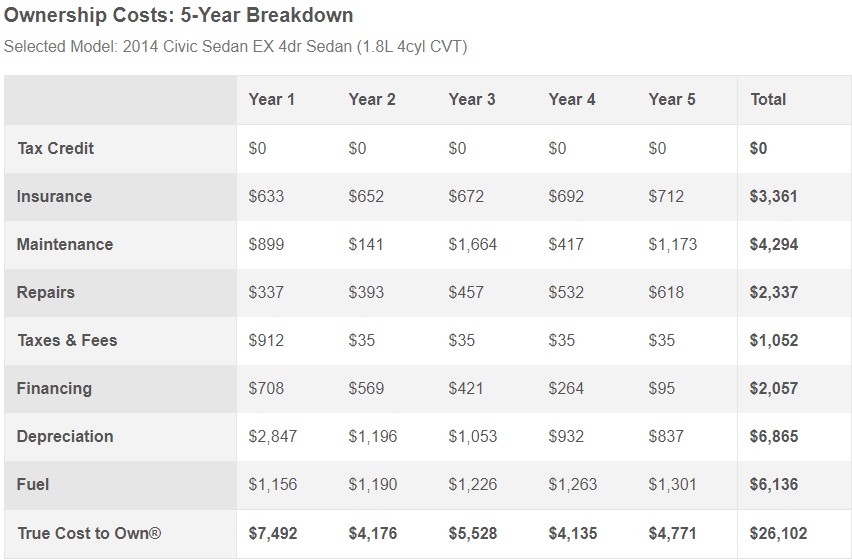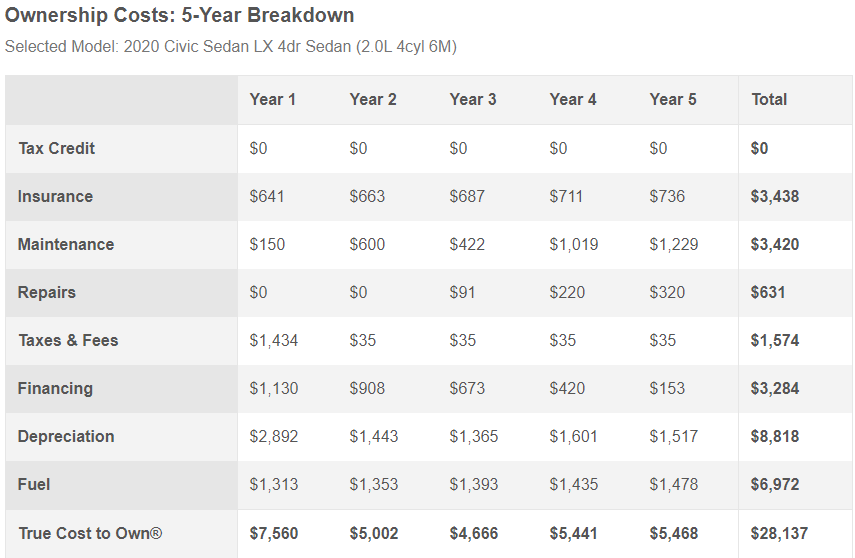Don’t get a nice car. Pay for your car outright. Maybe don’t even get a car if you can manage without one. If you’re into the Financial Independence world, you have heard all of these things said, but they’re easier said than done. However, a simple way for you to save money on your car every month is to create a vehicle maintenance checklist and STICK TO IT!
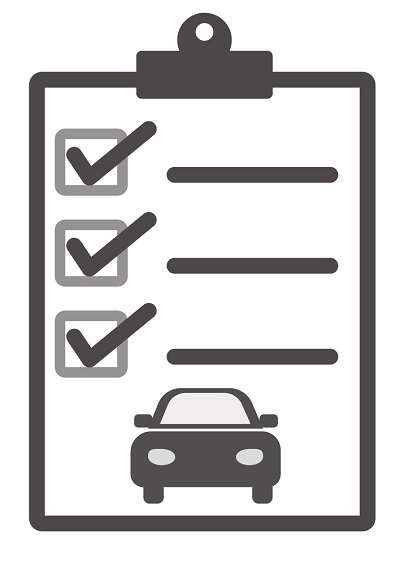
In episode 140 of the Investing for Beginner’s Podcast, Andrew and Dave talked about a lot of different ways to save money on vehicle maintenance and I wanted to add to that with an actionable checklist to help you save money on your budget.
Before I get into the checklist, I want to comment on something that I’ve heard on other podcasts and Andrew and Dave somewhat spun it on its head on their podcast.
Anyone in the financial independence community is going to tell you to buy a clunker and drive that thing until it dies. Like, maybe find an old Honda Civic with 150K miles on it for $5000 and then pay cash outright and drive it nonstop.
You likely can get that thing well over 200K and close to 300K miles if you continue to take care of it and it was taken care of for the first 150K.
That’s perfect, right? No car payment for you! While that’s true, your car maintenance is going to be much higher than if you were to buy a new Honda Civic. For instance, a $5000 clunker being bought outright might require a lot more repairs and maintenance, so it could just offset the savings that you’re getting by having an older car.
Now, I’d doubt it’s a perfect offset, but even if it’s close, you’re essentially paying the same amount for an older, crappier car – no Bueno. I found a really cool cost of ownership calculator at Edmunds where you can simply put in the year, make and model of your car and it gives you a 5-year breakdown of anticipated expenses based off driving that car for 16K miles/year, see below:
I filled this out for both 2014 Honda Civic and a 2020 Honda Civic to compare the difference expenses, shown below:
If you’re like me, you’re going to instantly go to the bottom right corner and see that the “True Cost to Own is just over $2,000 more for the 2020 Civic than it is for the 2014 Civic, over a 5-year period, so about a total of $34/month – essentially negligible in my eyes.
The area that I really want to key in on, however, is the “Maintenance” and “Repairs”. The total for those two sections for the 2014 Civic is $7,655 over the 5-years while the 2020 Civic total is $4,051. So, the 2014 Civic is going to cost you about $60/month more in repairs and maintenance over this time-period.
This is important to know because if your car payment of the 2020 Civic is going to be maybe $100 more than the 2014 Civic, maybe it’s worth it knowing that you’re going to have to pay about $60 more in maintenance and repairs each month, so you’re really only paying about $40 more for a newer car.
This isn’t me advocating for everyone to buy a new car, because I promise I will never ever buy a brand new car with how fast they depreciate, but just me saying that the math of evaluating a new car is more complicated than just looking at the car payments alone, so, as always, really dig in and do your research!
Sorry for the tangent, but that part of the podcast really hit home with me and I wanted to drill down on it a little bit more, but alas, let’s get started with my simple vehicle checklist to save your budget!
1 – Don’t ignore the ‘Check Engine’ light on your dashboard
Believe it or not, if the check engine light comes on you can simply go to AutoZone and they will hook this machine up to your car and tell you a general idea of why the light is on.
I did this once when I was in high school for a different sensor and it was because air was getting into my gas tank because the cap wasn’t suctioning it tight enough, so the sensor went off. It wasn’t a major concern of anyone, but it gave me a ton of peace of mind to know what was causing the light to come on.
2 – Change the oil…on schedule
This seems obvious, right? “Change your oil every 3 months or 3K miles, I know, I know, Andy.” Well, don’t necessarily do that. Look at your owner’s manual to see what is actually recommended. It’s not always every 3K miles. For instance, my old car was a Ford Taurus and it was every 7,500 miles.
If I had changed it every 3K I would’ve wasted a ton of money, and I felt confident going to the full 7,500 miles because that was the number that Ford was telling all of their Taurus owners to use when changing the oil, so I figured even that was a conservative number.
3 – Check the spare tire monthly
This will seem like a waste of time 99 times out of 100, but that 100th time that you decide not to check it is when you’re going to get a flat tire, your spare isn’t going to be inflated, and then you’re going to have to call a tow truck and be charged an arm and a leg. It’s such a simple thing that you can check and legit takes less than 15 seconds, and you should just go ahead and do it at the same time that you’re checking your other tires (which also should be monthly!)
4 – Check your actual tires for the right air
It’s easy to fill your tires full of air at any gas station or car wash but it’s very important to make sure that you’re filling them to the correct PSI. You can find that amount on the piece of metal between the car door and your car seat on the driver side door and it’s on a sticker, likely yellow and white.
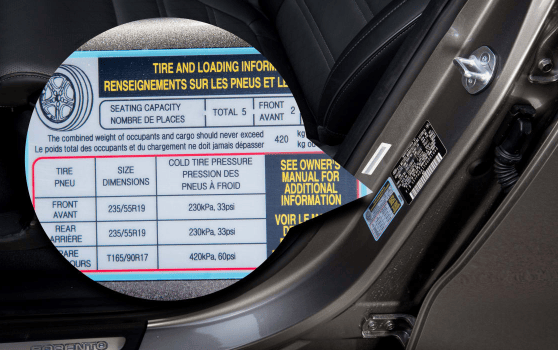
5 – Clean your car battery
Yet another simply change that can save you from having your battery spontaneously die, which would in turn either require you to spend money on a tow or spend a lot of mental energy waiting to get someone to jump your car. Either situation will require a battery sooner than you might need one if you were simply just to clean your battery. Curious how to do it? It’s not too hard!
6 – Do not ignore your squeaky breaks
If they’re squeaking, they need checked. Don’t ignore it no matter how insignificant the squeak is. They likely are going to need changed and if you wait too long, then the repairs might be more than just the brakes…
7 – Change your air filter annually or every 12K miles
A new filter costs about $10 – $20 and can be done by yourself. I am the least car savvy person in the entire world, and I was able to do this.
8 – Replace headlight and taillight bulbs
Same thing as above – I was able to do this for my car simply by finding a video on YouTube. Not only did this save me money on the actual repair but it saved me the future potential of getting in an accident or getting a ticket, both of which are not great scenarios.
9 – Rotate your tires at least every other oil change
Doing so can keep your tires fresh by making sure that the wear and tear is being evenly distributed amongst the tire. If you avoid this, your car could wear out part of the tire much faster as it’s consistently wearing on that same spot. If you can get the tires rotated, which is likely asked to you at every oil change, it can significantly slow down the need for you to buy new tires.
10 – Check your coolant
If coolant gets too low, you likely will have leak in your radiator which is by no means a cheap fix.
If you’re curious how to do this, I’d suggest YouTubing it just like many of these other fixes!
At the end of the day, these are all pretty simple repairs for you to keep your vehicle running in tip top shape and most importantly, prolong the life of your vehicle. Even if you don’t do these repairs yourself, simply by keeping an eye on them you can keep yourself out of a potential major issue, and most importantly, save some serious money!
Related posts:
- If You Forget These Personal Budget Categories, Your Budget WILL FAIL! The easiest way to fail on your personal budget is to not plan. That’s it – that’s how to fail. Or, maybe you plan but...
- Easy Ways to Save Money on a Tight Budget If you find yourself scrambling for money each month, try these easy ways to save money on a tight budget. You’ll learn some good habits...
- What Is a Sinking Fund? Only the BEST Way to Stay On Budget! I’m not lying – having a sinking fund is literally the best way that you can stay on budget. I mean, sure – you could...
- 5 Tips to Make Your Food Budget Work For You! Updated 1/18/2024 One of the biggest mistakes that I see with people is that they lack a food budget. Honestly, that is mind-blowing to me...

